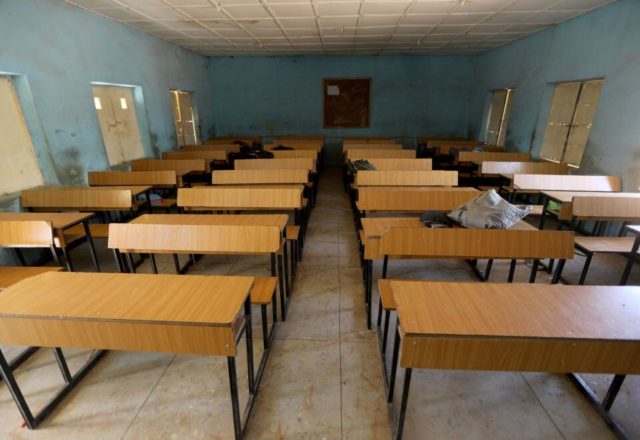Experts say the country is lagging in equipping children with the skills needs for jobs of the future.
DURBAN – EDUCATION experts say the country is lagging in equipping children with the skills needs for jobs of the future. University of KwaZulu-Natal’s Professors Vimolan Mudaly and Labby Ramrathan were commenting following the sixth annual Basic Education Sector Lekgotla yesterday.
During his keynote address, President Cyril Ramaphosa said the higher education sector recently raised concerns about the large numbers of pupils doing subjects which have less demand in the economy.
The president said one of the challenges was that pupils chose subjects that limit future opportunities and another was the poor performance of pupils in the fields of science, technology, engineering and mathematics (STEM).
He said studies showed that the country lagged in the information technology skills needed for the digital revolution.
“If we are to seize the opportunities of the Fourth Industrial Revolution, our education system must be reoriented towards its development in our country,” said Ramaphosa.
Ramaphosa said the Department of Basic Education was making headway on the national rollout of coding and robotics despite the delays caused by Covid-19, and the draft curriculum for these subjects had been submitted to education quality assurer, Umalusi.
A draft curriculum will soon be gazetted, he said.
“During the course of this year, 200 schools will be piloting the draft curriculum from Grades R to 3 and 1,000 schools will be piloting the Grade 7 curriculum,” said Ramaphosa.
Mudaly said the field of coding and robotics should have already been introduced into the permanent curriculum if children were expected to be actively engaged in occupations that don’t currently exist but would be too difficult for current pupils.
“Getting our learners equipped for a future that will be different from what we can imagine it to be, will require us to extend our minds and push the boundaries for the way learners think,” he said.
He said the field offered pupils the opportunity to delve into digital technologies, logical thinking, and problem-solving, computational thinking, handling electronic components, programming machines and preparing small codes for small machines.
“We are currently in the Fourth Industrial Revolution globally, and in South Africa, we are trapped in the third for a while now,” added Mudaly.
Mudaly agreed that SA was experiencing a mathematical and technological lag in relation to the rest of the world.
He said it would take SA a while to plan and change our outdated curriculum while the world moves ahead.
“We simply watch and react to these changes. We have to act now in order to influence education in 20 years time,” said Mudaly.
Ramrathan said coding and robotics was an essential knowledge and skills base of the 21st-century.
“This is a crucial knowledge and skill in today’s world to live and contribute to tomorrow’s world,” he said.
During an analysis of the 2020 National Senior Certificate results during the lekgotla yesterday, Dr Rufus Poliah, chief director of national assessments and public examinations, said the Department was concerned about the drop in numbers for maths and physical science.
Physical Science saw a drastic drop in the pass rate from 75.5% in 2019 to 65.8% in 2020, while the number of candidates passing maths declined from 54.6% to 53.8%.
Ramrathan said Mathematics has been made out to be a very difficult subject.
For example, he said making Maths an essential minimum requirement for access to many programmes had added extra attention to its value and created a fear for the subject.
He said this had resulted in a poor performance in Maths because many pupils do not like the subject among other challenges including teacher competence, access to resources, extended opportunities to learn Maths outside of the classroom and exposure to the poor performance of their peers.
“We need to address all of these challenges in innovative ways. One of which could be to make Mathematics more explicit in its utilitarian value (means to an end) and its links to our lives,” said Ramrathan.
Mudaly said the decrease in the maths pass rate should have been anticipated because South African children have not become sufficiently mathematically mature to work on their own.
“We know that they cannot develop a deeper understanding of difficult concepts independently. Teachers play an important role currently,” he said.
He further explained that the majority of SA children would have had very little access to extra practice examples during the lockdown and adjusted schedules inhibited their ability to prepare adequately.
Going forward, Mudaly said pupils would have to be trained to become self-sufficient and to seek assistance when required.
“There are heartening reports that many schools held extension classes during weekends as well, and hopefully this will become the trend for all mathematics matric classes,” he said.
Unfortunately, Mudaly added that there was no substitute for practice in mathematics.
“I also believe that national online classes presented by highly successful teachers should be offered to all learners,” he said.
He said internet and technology services must be improved in order to make these available to pupils with immediate effect.
The Mercury








